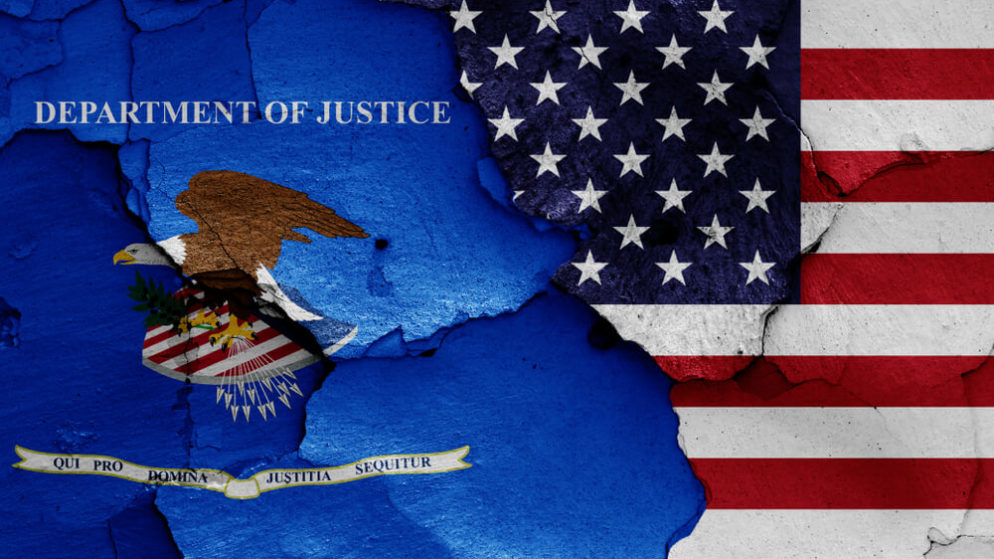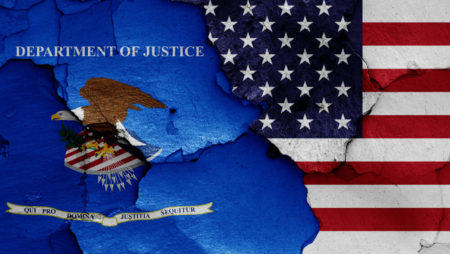

The US online gambling market rejoiced, as a federal appeals court upheld the opinion that the Wire Act only applies to sports betting. This is especially good news for online poker players.
Recently, a two-judge panel of the First Circuit US Court of Appeals agreed with the New Hampshire Lottery Commission, ruling against the Department of Justice. They ruled that the 1961 Wire Act’s prohibition on the communication of information related to gambling across state lines applies only to sports betting, not to other types of gambling, such as poker.
What we cover
Opens the Door for Interstate Poker Pools
The recent ruling opens the door for more states with legal online poker to share player pools with other states. Currently, only Nevada, Delaware, and New Jersey have a multi-state poker network through 888 and its affiliated sites, such as WSOP. Now, the path is clear for other states, such as Michigan and Pennsylvania, to add their online poker players to the network.
About the Recent Ruling on the Wire Act
In 2011, the Department of Justice’s Office of Legal Counsel issued an opinion responding to inquiries by various state lotteries asking if lottery tickets could be sold online, if that data was routed temporarily across state lines. At that time, the Office of Legal Counsel said that the Wire Act applied only to gambling on a sporting event. That opinion paved the way for intrastate online gambling markets, in particular for poker, in New Jersey, Nevada, and other states.
However, in 2018, the Department of Justice issued a new Office of Legal Counsel opinion that opposed the 2011 opinion.
That prompted the New Hampshire lottery to challenged the new opinion. In June 2019, US District Court Judge Paul Barbadoro sided with the New Hampshire lottery. But the DOJ appealed Barbadoro’s ruling and in 2020, the First Circuit panel heard the respective arguments from both sides.
Now, the Department of Justice has the option of appealing the First Circuit’s ruling to the US Supreme Court.
Interstate Poker Networks
As a game of skill, a minimum number of players is necessary for an online poker room to be successful. On the other hand, playing online slots, or even sports betting, is a solitary activity. This means, the more players an online poker room has, it’s not only more profitable for the operator, but also more fun and challenging for the players.
This can make interstate poker networks critical, especially when it comes to the big poker festivals. For example, Nevada has a population of just 3 million people, and one million of those are under 18, and thus, can not gamble. Out of the remaining 2 million people, only a fraction of those regularly gamble, let alone play poker online. So at any one time, just a few thousand, or less, might be online playing poker. While this seems like a lot, it’s just enough to keep an online poker website going.
Currently, only Nevada, New Jersey, and Delaware share a pool of online poker players on the 888poker network. This allows players in these states to compete against each other in the prestigious WSOP Main Event.
While currently, the DOJ appears to the underdog in regards to interstate, online gambling, and the Wire Act, the ongoing litigation seems to have put the brakes on expanding the interstate poker network. Thus far, the Department of Justice has only agreed to defer enforcement of the Wire Act until the end of 2020, and now, that time is up.
Also, the logistics of sharing player pools requires time, money, and effort on the part of state gambling regulators and the poker sites. With the Wire Act still up in the air, both regulators and gaming operators have been unwilling to make that investment.
States that have recently legalized online poker, will ultimately want to wait for a final decision regarding the Wire Act before they open their markets to interstate player pools.





